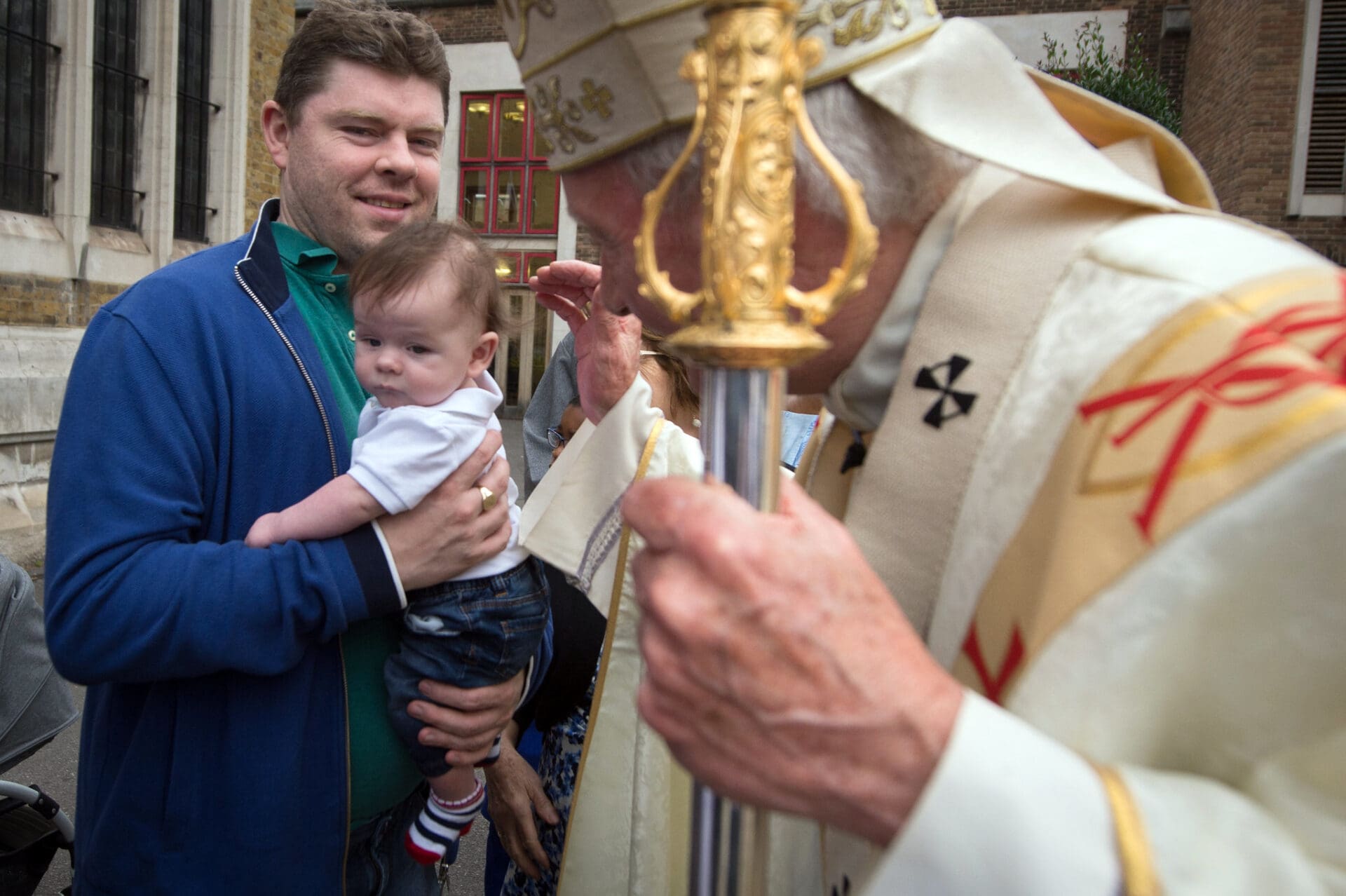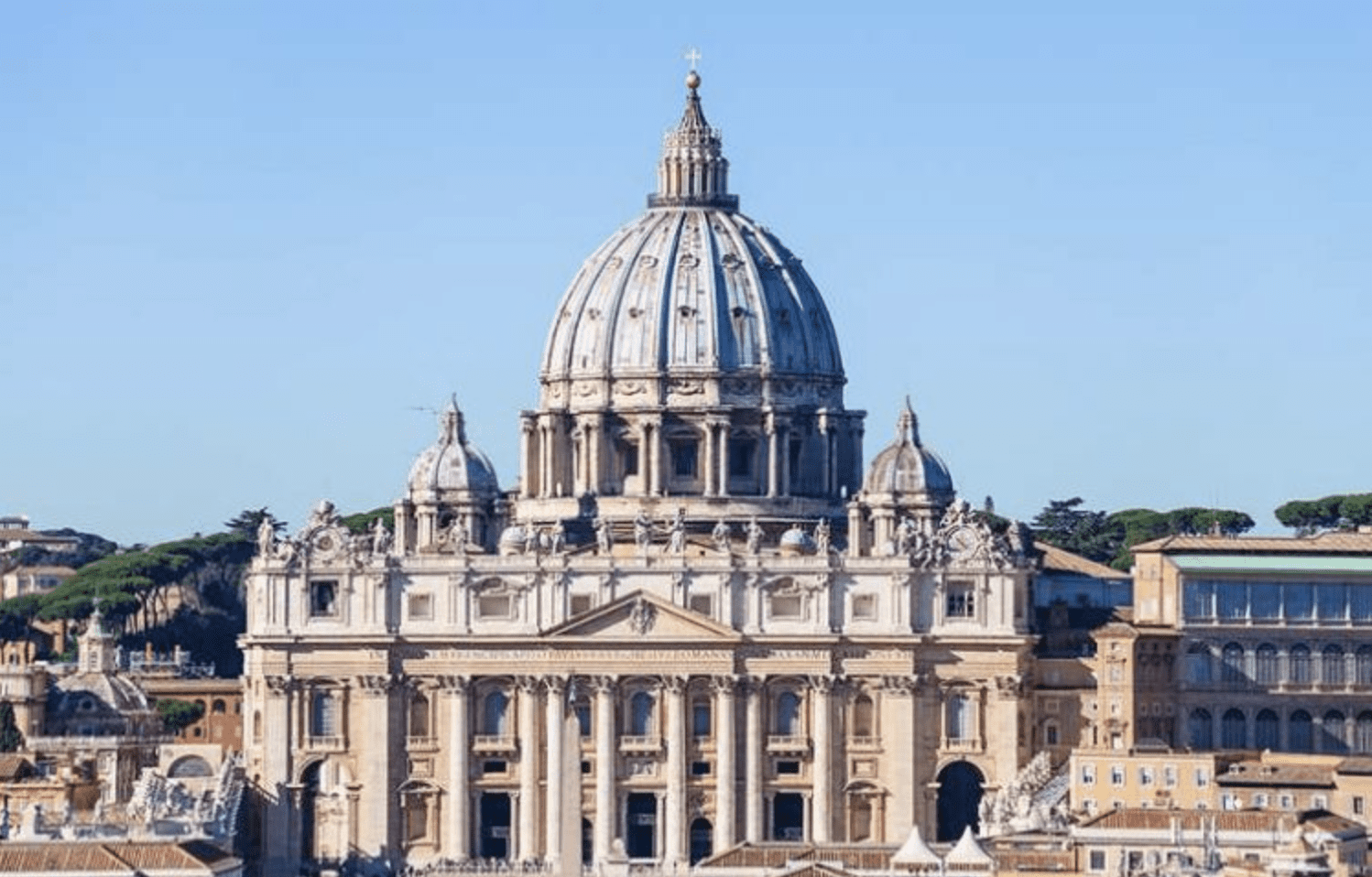“Idleness is an enemy of the soul” (Otiositas inimica est animae), says St. Benedict.[1] We might wonder about the veracity of this saying when we recall the famous story of St. Ignatius of Loyola’s conversion. Rather than harm his soul, idleness seems to have occasioned his conversion. Yet, this story as well as our experience of the COVID-19 shut downs offer us an opportunity to appreciate the truth of St. Benedict’s saying on a deeper level. And this, in turn, can help us to see the important place that religious structures, such as liturgical and devotional practices, have in our spiritual lives.
The conversion of St. Ignatius was occasioned by idleness in that it happened while he was confined to bed in order to recover from a cannonball injury. Looking for something to do and having been a worldly man beforehand, he thought of the “worldly books of fiction and tales of knight-errantry” that he had enjoyed reading in the past.[2] But after asking for books to read in the house where he was recovering, he found that there were only books about Christ and the saints. Rather than do nothing, he read these books and it led to his conversion. In particular, he noticed that when he thought about the worldly exploits in the books that he had previously read, he experienced pleasure, but it did not last and gave way to dryness and depression. On the other hand, when he thought about the saints described in the religious books, he experienced a joy that lasted.
Idle in the Marketplace
Being idle did help in St. Ignatius’ conversion, but this kind of idleness is different from the kind of which St. Benedict speaks. That is, idleness (otiositas) has different shades of meaning and, to understand St. Benedict’s saying, we must exercise our minds in trying to see the nuances. To start, consider one meaning of idleness: it is that a person is doing nothing. We find this in the parable of the laborers (Matthew 20:1-16) when the landowner finds laborers standing around “idle” (otiosus in the Vulgate, vv. 3, 6) and then hires them. St. Ignatius was idle in this sense, since he was doing nothing at first while he convalesced in bed.
When people are doing nothing, it is often because they have nothing to do. Thus, St. Ignatius was doing nothing because he had nothing to do while in bed. Similarly, when the landowner in the parable asks some of the laborers why they are idle, they explain that it is because they have no work to do (Matthew 20:6-7). However, the expression “having nothing to do” is usually not strictly true, for there is most likely something that a person can do. The expression means in most cases that one’s options of what to do are significantly limited. People especially say, “I have nothing to do,” when they are kept from doing what they are accustomed to do. This has been many people’s experience during the pandemic, especially in its initial months. Many had nothing to do in the sense that they were unable to do many of the things that they were accustomed to do before.
When lacking things to do, people can turn to beneficial activities, but they can also turn to bad behaviors.
Notice that idleness in the sense of doing nothing is not an evil. People do not like doing nothing and therefore they avoid it. As nature abhors a vacuum, people abhor doing nothing. As a result, when they are kept from doing what they would customarily do (and in that sense, have nothing to do), they find new things to do. They do not stay idle forever. We see this in the story of St. Ignatius. First, he has nothing to do in that he is prevented from doing his customary activities while confined to bed. He is not even able to read the kind of books that he likes. But not wanting to do nothing, he looks for new things to do. This even leads him to do something that he ordinarily would not have done, namely, to read religious books.
What St. Ignatius found to do was beneficial and, during the pandemic, many people have found beneficial things to do after they were no longer able to do their customary activities. For example, many have benefited from more time with family or from enjoying the outdoors. But of course, not everything that people have found to do during the pandemic has been good. For example, when stay-at-home orders went into effect, the use of alcohol, marijuana, and pornography increased.[3] When lacking things to do, people can turn to beneficial activities, but they can also turn to bad behaviors.
Leisure to Do Nothing
In addition to doing nothing and to having nothing to do, we can speak of not having to do things. Here one is not obliged to do anything. There are no activities that one has to do and, therefore, one is free to do as one wishes—which is to say that one enjoys a state of leisure (otium). This is a second meaning of idleness. Opposed to this idleness is the work that one has to do, whether for a job, as a parent, as a student, or otherwise. For example, those with jobs have to wake up by a certain time, get ready for work, commute to work, do their work, and so on. Parents have to wake up their children, feed them, schedule for their various activities, etc. Students must wake up, get ready for school, go to school, follow their schedule of classes, and the like. Historically, only the very wealthy, who do not need to work and can hire servants to manage life’s necessities, have been able to experience this second kind of idleness, or leisure, on a regular basis. But it is also true that the average person today experiences more of this idleness than in previous eras, since modern technology and efficiencies have made many necessary tasks less time consuming (e.g., doing the laundry, preparing meals).

In contemporary parlance, we often speak of this kind of idleness as “free time.” The great value of having free time is to have time when we do not have to work, but can instead do such things as pray, read good books, spend time with family and friends, and enjoy the beauty of God’s creation. These are activities that nourish the spiritual life, maintain one’s core relationships, and allow the soul to keep the big picture in mind. But when the demands of work are too great, these activities are squeezed out of our lives. So, it is necessary to have free time, or leisure, when we do not have to work and can do these soul-sustaining activities.
But there is also a risk with free time and we can see it by honestly asking ourselves: How well do I use the free time I have to do soul-sustaining activities? How often does it happen that if I have free time, I squander it on doing things that are not soul-sustaining? For example, Jack has time in the morning to pray, but he squanders it on his Facebook feed. Or Jill has been meaning to read St. Francis De Sales’s spiritual classic, An Introduction to the Devout Life, but when free time opens up, she spends it doing projects around the house that are not urgent.
Good and Free
The pandemic has given us an opportunity to examine how well we use free time by giving us more of it. As already noted, things that we customarily did (and sometimes had to do) were no longer possible to do, when stay-at-home orders went into effect. Morning routines were drastically simplified when people no longer had to go in for work and, as a result, there was more time in their mornings. Also, many appointments and various activities were cancelled, so that gaps opened up in people’s schedules. There was a void, but not wanting to do nothing, people found activities with which to fill that void. In other words, we had more free time and we looked for things to do in that free time. We have noted some of the good and bad ways in which people have spent this time, but what about ourselves? Have we always used this newfound free time well? Isn’t it the case that we have sometimes occupied the free time with things that cater to our superficial tendencies? Perhaps we ate more than we should, overslept, spent too much time on the internet or on streaming programs. These have been common problems during the pandemic. When we do such things, we often feel what St. Ignatius felt after he thought about worldly exploits: the initial pleasure or thrill of the activity gives way to dryness and even depression.
The pandemic has given us an opportunity to examine how well we use free time by giving us more of it.
What I would like to point out is that we often do not use our free time well. Free time is valuable in that it gives us opportunities to do soul-sustaining activities, such as praying, reading, and having good conversations. But often we do not use our free time for these things: instead, we use it to do things that are easier or more comfortable. It is like high school students who are given a free period for studying in the library. Although studying would be the constructive thing to do, talking is easier and more comfortable; therefore, librarians sometimes have to keep students from talking during these times. St. Benedict makes a similar observation in the same chapter in which he gives his saying about idleness. He says that if the monks are allowed, they may fall into empty talk rather than do their lectio divina.[4]
If we were more virtuous, this would be less of a problem. Virtues would inwardly dispose us to use our free time on constructive activities. But since we are not yet perfectly virtuous, we do not always use our free time well. Instead, when we do not have to do things, we follow our tendencies to do what is comfortable and easy, if not sinful. Ever the realist, St. Benedict knew that his monks were not perfectly virtuous, and that free time (that is, idleness) therefore presents a risk for their souls. Not having to do anything, monks like other people are prone to spend the time poorly rather than constructively.
Another Benedict Option
St. Benedict’s solution to the danger of free time is to structure time. Thus, his saying, “Idleness is an enemy of the soul,” introduces a chapter in his Rule that lays down structures with regard to times for work and times for lectio divina. A structure, as understood here, is a directive or prescribed way of conducting oneself, where one can see, after the fact, whether one followed what was prescribed. Customs, practices, and observances are examples of structures. For example, St. Benedict says that from October to the start of Lent, the monks should do lectio divina until 8:00 a.m.[5] That is a structure, for it says what to do and one can see afterwards whether one did it.
St. Benedict’s solution to the danger of free time is to structure time.
When there are structures in place, then it is no longer the case that one does not have to do something. Instead, one has to do what the structures prescribe. In this way, structures work against idleness in the second sense. But this point needs to be nuanced, for structures do not necessarily take away free time in the sense of eliminating time when one does not have to work and can therefore do soul-sustaining activities. In fact, some structures help us to do such activities during our free (from work) time. They may take away from free time in the sense of filling some of that time with things that one has to do, but they fulfill one of the purposes of free time by directing us to do those easily neglected activities that sustain the soul.
Religious structures are this kind of structure. Here the structures of the Church’s liturgy deserve special mention. These structures, especially attending Mass on Sundays and holy days of obligation, direct us to do activities that nourish our spiritual lives, such as lifting the mind and heart to God, having our souls fed with Scripture, and being united with other members of the Church. We always need such structures, but their need has been especially felt during the pandemic when idleness as free time has increased. This makes limited access to the Mass all the more unfortunate. But as a Church we are blessed to have also the Liturgy of the Hours, which structures the day with opportunities to worship God, hear his Word, ask his aid, and unite with fellow believers spiritually, if not also physically. Other valuable structures may be practiced by following the liturgical calendar and observing certain customs with regard to memorials, feasts, and solemnities. Further, there are devotional practices, such as a daily Rosary or a family Rosary. Structures such as these help us to do the soul-sustaining activities that we easily neglect.
Pandemic Wisdom
I am one of those who, while looking forward to the end of this pandemic, do believe that God in his providence wants us to learn certain lessons from it. One of those lessons, I believe, is that religious structures are valuable, even indispensable, for our spiritual lives. Even before the pandemic, many people, especially Catholic families, were coming to this realization and were therefore incorporating liturgical and devotional prayers and customs into their lives. May this movement continue to grow due to our experiences in the pandemic. In this essay, I have tried to use the story of St. Ignatius’ conversion and St. Benedict’s wisdom to gain a deeper understanding of why this movement meets a real need and is worthy of support.
Notes
- Rule of St. Benedict 48.1. ↑
- An account of St. Ignatius’ conversion is in the Second Reading from the Office of Readings for the saint’s memorial on July 31st (The Liturgy of the Hours According to the Roman Rite, vol. 3, Ordinary Time Weeks 1-17 [New York: Catholic Book Publishing Co., 1975], 1565-66). ↑
- Various articles are available on the internet about these trends, e.g.: for marijuana, Kristine Owram, “Pot Use Reached All-Time High in March Amid Lockdown Measures,” on Bloomberg (April 8, 2020), https://www.bloomberg.com/news/articles/2020-04-08/pot-use-reached-all-time-high-in-march-amid-lockdown-measures (accessed January 14, 2021); for pornography, Justin J. Lehmiller, “How the Pandemic is Changing Pornography,” on Psychology Today (March 23, 2020), https://www.psychologytoday.com/us/blog/the-myths-sex/202003/how-the-pandemic-is-changing-pornography (accessed January 14, 2021); and for alcohol, Michael S. Pollard et al., “Changes in Adult Alcohol Use and Consequence During the COVID-19 Pandemic in the US,” on JAMA Network (September 29, 2020), https://jamanetwork.com/journals/jamanetworkopen/fullarticle/2770975 (accessed January 14, 2021). ↑
- Rule of St. Benedict 48.17-20. ↑
- Ibid., 48.10. ↑
Adoremus Bulletin for May 2021: Vol. XXVI, no. 6


